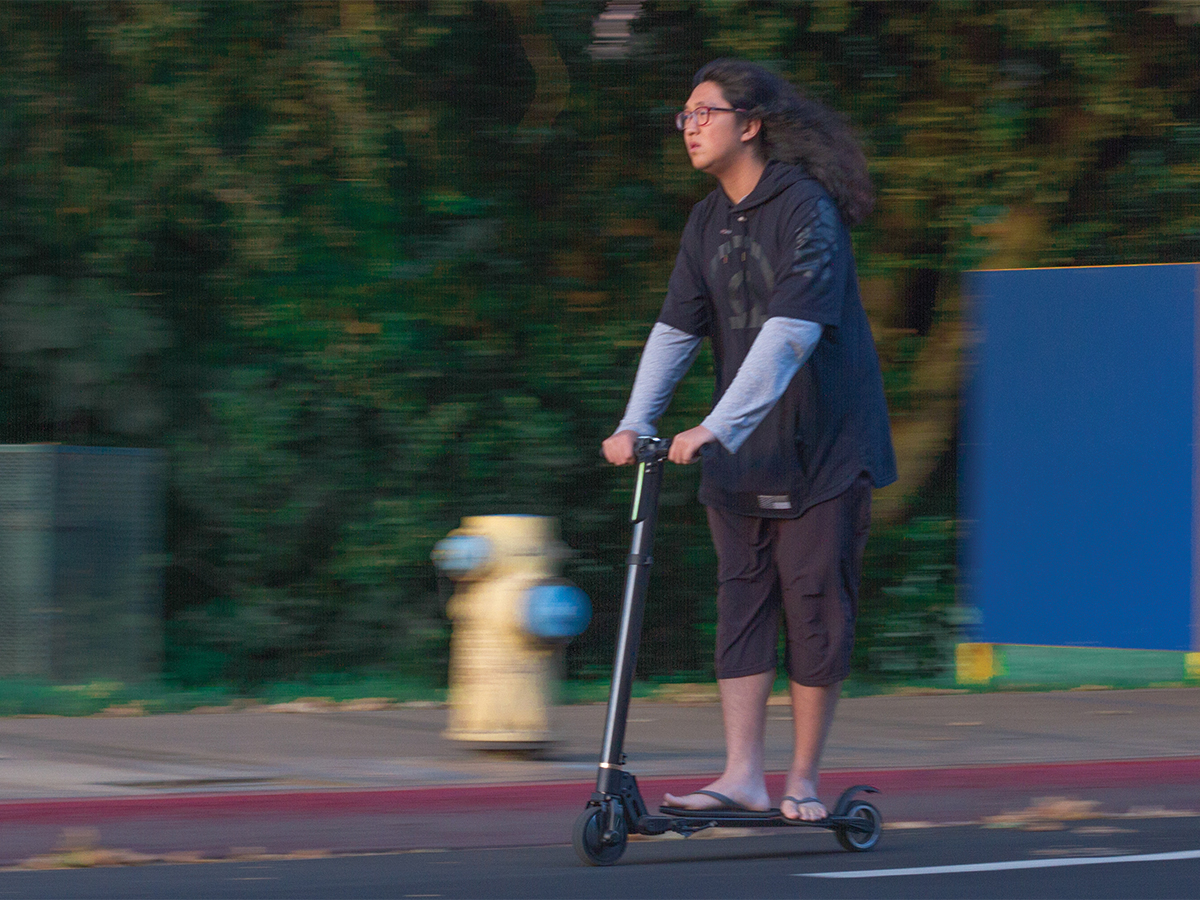Electric scooters placed throughout UCR and the city have spurred the university to revise current policies on motorized vehicles on campus. According to Assistant Chief of Police John Freese, this is mainly due to “the new scooter issues related to “Bird” (the company that has currently released the scooters on campus) and similar companies.” The revisions are currently being carried out by the Communications and Policy Coordination Group (CPCG) and its subcommittee.
Bird was contacted via email for its own remarks on the safety concerns, and the Highlander spoke with Rachel Bankston of Bird’s media department. According to Bankston, “Rider education is very important for Bird, and we are committed to partnering with every campus we operate within to ensure that the student body, faculty and staff, and visitors safely embrace our affordable, environmentally friendly transportation option.”
Bankston stated that Bird hopes to “improve and enhance the well-being of our riders and communities through concrete action,” which includes the creation of speed limits for the scooters, the uploading of driver’s licenses through the app, age confirmation, in-app scooter tutorials and safety instructions.
In the interest of safety, Bankston reported that “Bird was also the first in the industry to offer free helmets to its riders. To date, Bird has distributed more than 50,000 free helmets to riders.” She also mentioned Bird’s establishment of the Global Safety Advisory Board, which will “create, advise, and implement global programs, campaigns, and products to improve the safety of those riding Birds and other e-scooters.”
Bankston additionally provided a spokesperson’s statement on Bird’s plans to do business in Riverside, which is as follows:
“Riverside shares Bird’s vision of getting cars off the road to reduce traffic and carbon emissions. We are thrilled to offer our affordable, environmentally friendly vehicles to the city and we hope to work closely with city and campus leaders to build a framework that works for everyone so the community can have access to more transportation options.”








